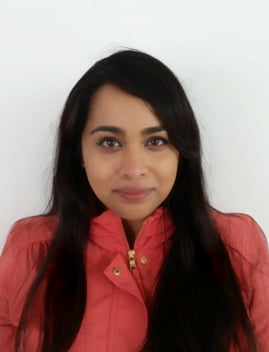Meet Your Summer Mentor: Nora
Topic: Writing Science Fiction Worlds
Construct an original science fiction world, using lessons gleaned through reading the seminal works of Samuel Delany, Robert Heinlein, Octavia Butler, William Gibson, and other ‘literary science fiction’ writers. We will dive in and work through some of the most radical speculative settings to better understand the basics of convincing, effective and believable world-building. (Wonderfully, these happen to be world-building lessons that can be applied to all creative writing). We will then try our hand at writing our own worlds based on these lessons, through a guided practice of drafting and workshop-style revision. We’ll discuss genre, poetry and craft in the process. The final goal? Submission of your piece, whatever form it takes, to a magazine or website of your choice.

Nora Khan, MFA - Iowa Writers’ Workshop, Harvard Business Researcher
As a junior at Harvard, Nora began studying creative writing in workshops with novelist Jamaica Kincaid. For her senior thesis, she wrote a novel which won the Thomas Hoopes Prize and Edward Eager Memorial Prize. She went on to complete an M.F.A. in Fiction at the Iowa Writers’ Workshop, where she was an Iowa Arts Fellow, and studied with Marilynne Robinson, Elizabeth McCracken and Jonathan Ames. In the years following, she published short stories and fiction in Conjunctions, DIS Magazine, Hunger Mountain and American Literary Review, along with critical essays and reviews in Rhizome, AVANT, Kill Screen and New Criticals.
For eight years, Nora has mentored scholars, novelists, poets, graduate and undergraduate students in the art of powerful, effective writing. She is deeply committed to helping each individual, no matter the level of experience or frustration, find his or her voice. She revels in helping clients articulate and tailor their projects - whether a philosophy term paper or an investors' strategy report - to fit their vision.
Nora has worked as a professional editor, essay coach and writing tutor. From 2012 to 2014, she was a research associate and case writer at Harvard Business School. She served as head teaching assistant overseeing the critical writing program within Professor Nancy Koehn's course, Power and Glory in Turbulent Times: The History of Leadership. For three years, she guided graduate students - MBAs, MPPs, and MC/MPAs - through the critical writing process.
Before this role, she taught non-fiction and creative writing to University of Iowa undergraduates as a teaching fellow, worked as a writing and verbal instructor (GRE, SAT) for test preparation firms, and helped many hopeful applicants (to medical, law and business school) with their personal essays. Once upon a time, she was a fact-checker at Details, and interned at The New Republic.
In her free time, Nora volunteers at Rosie's Place, a women's shelter in Boston, and bikes.
Interview with Nora
1) Why are you excited to teach a mentorship in science fiction?
As a fiction writer and creative writing teacher, I’ve always been a bit resistant to the harsh division between literary fiction and science fiction in the publishing world. The work of many of the writers I have learned the most from - Kazuo Ishiguro, Flannery O’Connor, Margaret Atwood, to name just a few – often blur the line between the two genres. Speculation is at the heart of fiction. Science fiction and futurist worlds are fabulous spaces to learn traditional writing lessons of craft, plot-building and character development – and to get a taste of the impulses behind more experimental or avant-garde narratives. Personally, I’ve been strongly influenced by the writers I’ll be exploring with my students this summer. They are formidable originals and life-changing influences for many writers. I feel very invested in helping a budding writer discover his or her voice through these readings and through a one-on-one workshop process; these are influences and modes of work that helped me approach my own voice.2) What inspired you to pursue writing?
I’ve been working as a professional writer for a decade now, and there are many answers that I have to this question! The first: there is nothing I love more than writing. There is a real peace to being completely immersed in a world of your own dreaming. The act of writing is a process of self-realization. As you'll find when you meet me, I take it very seriously. When I was 21, I would probably say that writing felt like the most natural extension of the academic work I was doing at the time. At 31, I would say that writing is the best way to generate new spaces for thought, collaboration and possibility. Writing is fundamentally a hopeful and forward-leaning use of one’s time; you’re placing faith in people eventually reading, speaking and gathering around the pieces you have put out into the world.
3) What will I get out of this mentorship?
I am hoping that this summer mentorship will help you get acquainted with what the writing process entails. I am really looking forward to hearing about what you find interesting in the worlds we explore. I want to see what captures your imagination, and read what you’ll come up with on your own. I’m also eager to work with you on your science fiction story, or play, or poem – whatever you choose to create – and help reshape it into potentially publishable form. I want to help you conquer any fears or anxiety you might have about your writing skills. The experience of drafting, revising and editing a story, and then sending it out for publication, is an empowering one. You’ll learn to articulate your ideas well, and you’ll also learn about the creative process, which is one part your natural genius, two parts your commitment and dedicated work. You can carry the lessons you'll learn into all your future endeavors.




